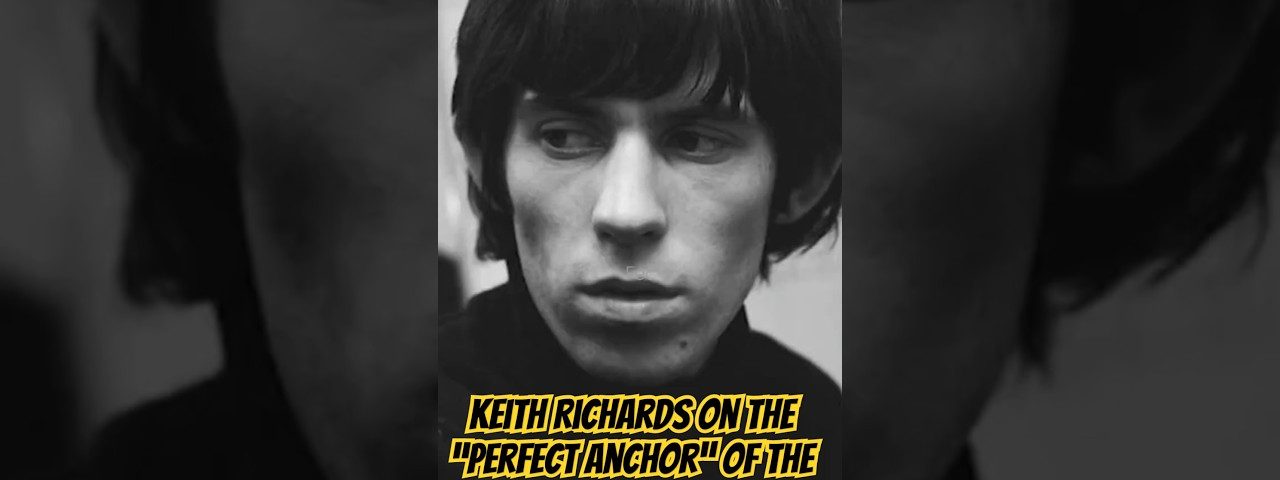By: Will Howard (Far Out Magazine)
Saturday, February 8, 2025, 3.00pm, UK
Jagger and Richards. Mick ‘n’ Keef. The Glimmer Twins. Captain Lips and Captain Jack Sparrow’s dad. Discussing The Rolling Stones is so often not a discussion of that band but of the two seemingly immortal trickster gods at their centre. Two men who show there truly is nothing you can do to your body that rock & roll (or more specifically, the Scrooge McDuck levels of wealth that can come from it) can solve. It may sound silly to remind people of this, but The Rolling Stones are a band, actually.
Much like Blondie after them, it’s worth reminding people that just because there’s someone really, really famous in the band, they’re not the only person worth focusing on. What made The Stones great in particular was never really what Jagger and Richards came up with, it was the interplay of the band as a whole. After all, when the band rose to prominence in the mid-1960s, the frontman of the band was neither Mick nor Keith, but Brian Jones.
This continued long after Jones departed the band in 1969. While Jagger and Richards did step up as the frontmen of the band, they always needed a guitarist to play off them. Jones’ immediate successor was the mercurial Mick Taylor, whose slide playing lights up the band imperial phase of 1968 to 1972. Once Taylor took his leave in 1974, Ronnie Wood, formerly of The Faces and latterly of ill-advised dalliances with Russian waitresses, took his place.
In later years, the likes of bassist Darryl Jones and keys player Chuck Leavell have become as important to the band’s live sound as anyone else, but there are two men in particular who need their flowers. Two people who The Stones would have never been The Stones without. The first was the band’s rock. The face of unflappable, steadfast cool in the face of one of the most chaotic bands of the 1960s, their late, great drummer Charlie Watts.
It’s telling that the most enduring story of Watts’ is also one of the very few times (that we know of) that we saw a rock star ego to him. The story goes that after a heavy night out, Jagger got room service at a hotel in Amsterdam to summon him, saying, “Get me, my drummer”. According to Keith Richard’s titanic memoir Life, Watts arrived at Jagger’s room, suited up with a cravat in place, and punched Jagger right in the face, saying, “I’m not ‘your drummer’, you’re my fucking singer!”
Jagger has since denied the fracas ever happened, but these things last because there’s a hint of truth to them. With this story, that hint becomes a fully-fledged giveaway. Watts was the heartbeat of The Stones. His backbeat powering the riffs and choruses we love. It’s not for nothing that after Watts’ passing, no less an authority than Pete Townshend said that Watts’ drumming was “why The Stones swung like the Basie band!”
He wasn’t alone with that, though. In an interview with Guitar Player Magazine in 1977, Richards spoke of not only his interplay with The Stones’ drummer but their bassist Bill Wyman, too. He said, “I don’t really know what to say about Bill because he is, like, the perfect anchor between Charlie and myself. To me, his strong point is that he’s always there, but he’s always unobtrusive. And, for me, straight-ahead rock and roll bass should be there, but you should feel it – it should never stick out so that you actually notice it more than anything else.”
No matter the cult of personality surrounding the two most famous Stones, they were never the only reason they were great. The Rolling Stones were a proper rock ‘n’ roll band with an alchemy that only came from the right chemistry between all five members. Let’s be real here. While they can put a decent stadium show together these days, there’s a reason they’re not quite the same band they were at their peak.
